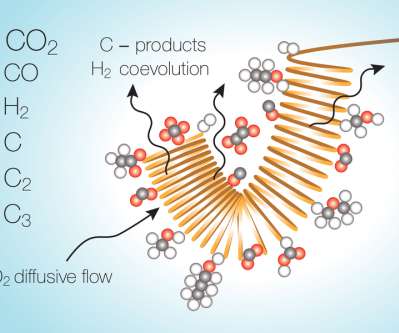MIT researchers propose mechanism for overcoming bottleneck in electroreduction of CO2
Green Car Congress
JANUARY 14, 2022
Researchers at MIT have identified , quantified, and modeled a major reason for the poor performance of electroreduction processes to convert CO 2 to fuel or other useful chemicals. Depending on the material choice for the electrocatalysis, a certain variety of products is expected from the carbon dioxide reduction reaction (CO 2 RR).





























Let's personalize your content